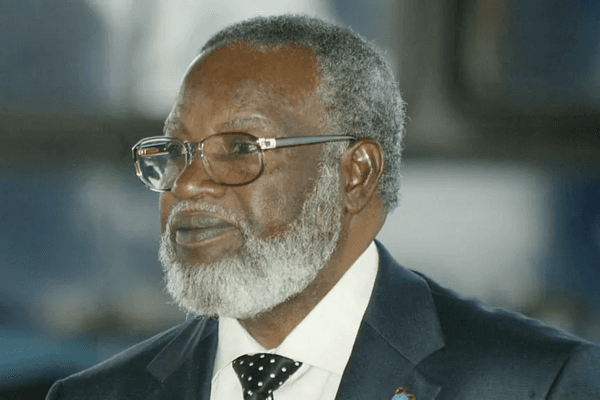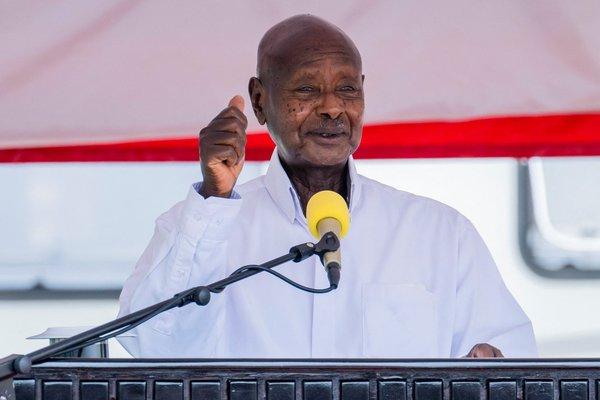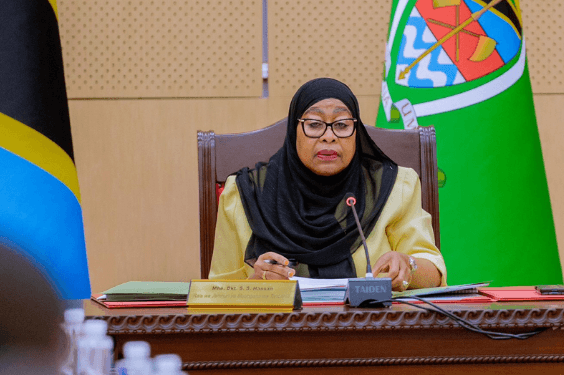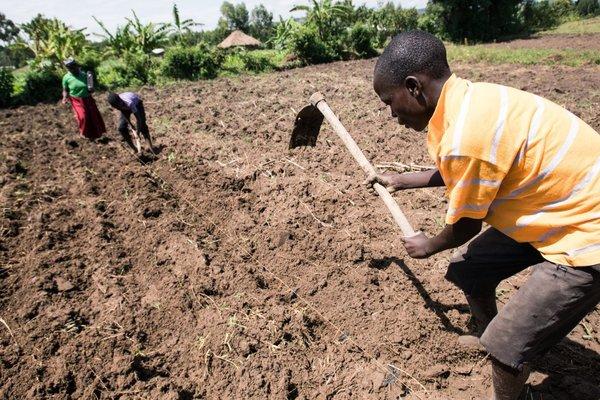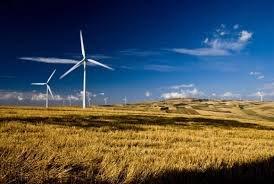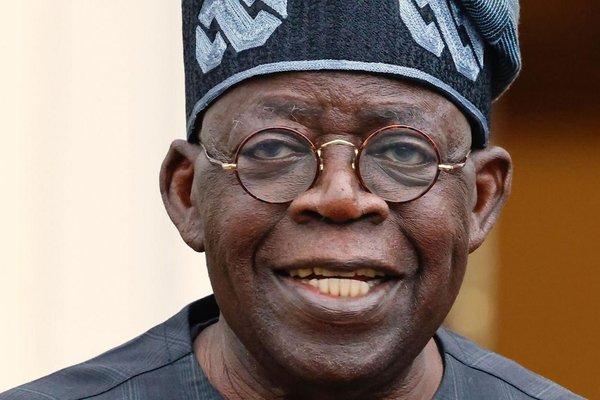Ethiopia
Ethiopia is a landlocked country in East Africa, known for its rich history, diverse cultures, and stunning landscapes. It is often called the “cradle of humanity” due to its ancient archaeological sites. Ethiopia is the only African country that was never fully colonized, and it has its own unique script, calendar, and languages, with Amharic as the official language. The country is famous for its highlands, coffee, ancient churches, and historic sites like Lalibela and Axum.

Horn of Africa in Eastern Africa

1.1 million square kilometers

EAT, UTC+3

134 million (Early 2025)

Amharic, Oromo

Ethiopian Orthodox Christianity, Islam

Ethiopian birr (ETB)

Sahle-Work Zewde

Brief
Ethiopia is a landlocked country in the Horn of Africa, known as one of the world’s oldest nations and often regarded as the cradle of human civilization. It has a long, rich history, being home to ancient kingdoms such as Dʿmt and Aksum. The Kingdom of Aksum (1st–8th century CE) was a powerful empire that controlled parts of present-day Eritrea, Ethiopia, and even Yemen, known for its towering obelisks and early adoption of Christianity in the 4th century.
Ethiopia was one of the few African countries to successfully resist colonization, defeating Italy at the Battle of Adwa in 1896. Though briefly occupied by Italy from 1936 to 1941, it quickly regained its independence. Ethiopia is also known for its ancient script (Geʽez), unique calendar, and religious traditions. It remained a monarchy under Emperor Haile Selassie until 1974, after which it faced political upheaval and periods of conflict.
Today, Ethiopia is Africa’s second-most populous country, with Addis Ababa as its capital and largest city. It is known for its diverse ethnic groups, languages, and landscapes, including the Great Rift Valley, highlands, and deserts. Famous cultural sites include the rock-hewn churches of Lalibela and the ancient city of Axum. Ethiopia remains deeply tied to its cultural heritage, while also being one of the fastest-growing economies in Africa.
Photos




National Anthem
Cultural Life
Cultural milieu
Ethiopia is one of Africa’s oldest nations, with a rich history shaped by diverse cultures and religions. It is known for its unique Christian tradition, as one of the earliest countries to adopt Christianity in the 4th century. Ethiopia’s position as a crossroads between Africa and the Middle East has brought influences from Arab, Cushitic, and Nilotic peoples, creating a vibrant mosaic of languages and ethnic groups. The country has maintained its independence through centuries, avoiding European colonization except for a brief occupation by Italy. Ethiopia’s rich heritage includes ancient languages like Ge’ez, historic churches, and a strong cultural identity that continues to thrive today.
Daily life and social customs
Social life for most Ethiopians revolves around family and community gatherings. Coffee ceremonies are a cherished tradition and a common way for people to socialize and connect. In cities like Addis Ababa, residents enjoy a growing variety of entertainment options, including cinemas, restaurants, and bustling markets where traditional crafts and local foods are sold. Music and dance are important cultural expressions, often featured at festivals and celebrations. Ethiopia’s diverse landscapes offer opportunities for outdoor activities, and weekends are often spent visiting family, attending church, or enjoying nature.





Cuisine
Ethiopian cuisine is known for its rich flavors and communal dining style. Injera, a sourdough flatbread made from teff flour, is a staple and serves as both a plate and utensil. It is typically served with a variety of spicy stews called wats, made from lentils, vegetables, and meats such as beef, chicken, or lamb. Berbere, a fragrant spice blend, is key to many dishes. Coffee holds a special cultural significance and is often enjoyed during elaborate coffee ceremonies. Traditional beverages also include tej, a honey wine, and t’ella, a homemade beer. Ethiopian food emphasizes fresh ingredients, bold spices, and sharing meals with family and friends.



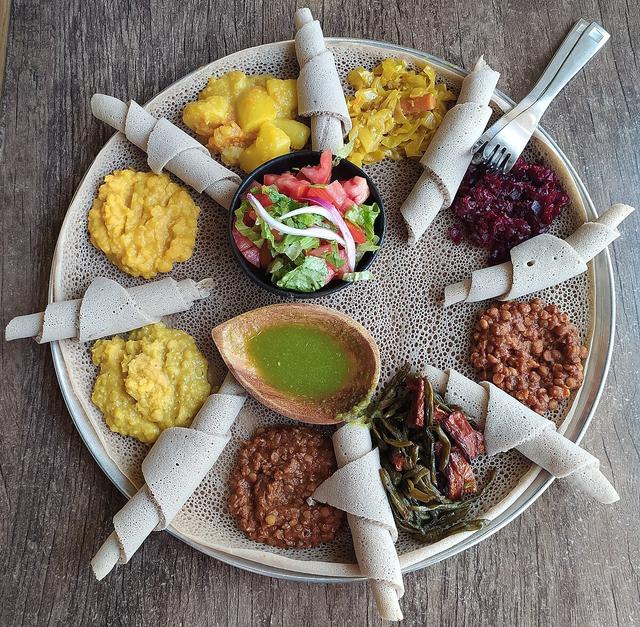
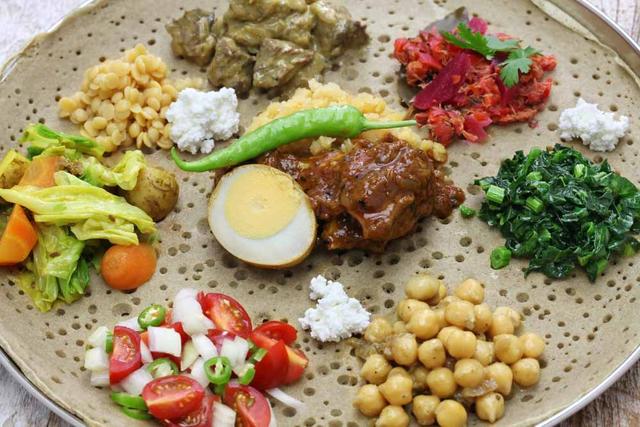
Music
Ethiopian music is a vibrant blend of traditional and modern influences, reflecting the country’s diverse ethnic groups. Traditional instruments include the krar (a six-string lyre), masenqo (a single-string fiddle), and kebero (drums used in religious and cultural ceremonies). The unique pentatonic scale gives Ethiopian music its distinctive sound. Renowned Ethiopian artists like Mulatu Astatke, the father of Ethio-jazz, have gained international acclaim. Modern Ethiopian music combines traditional melodies with jazz, reggae, and pop, appealing especially to the youth while preserving rich cultural heritage.
Ethio-Jazz
A fusion of traditional Ethiopian music with jazz, funk, and soul. Pioneered by Mulatu Astatke, Ethio-jazz combines pentatonic scales with Western instruments and rhythms.
Traditional Folk Music
Varies by ethnic group, featuring indigenous instruments like the krar (lyre), masenqo (single-string fiddle), and washint (flute). Folk songs often accompany dances and rituals.
Tizita
A nostalgic genre often compared to the blues, characterized by slow melodies and emotional vocals. It expresses longing and melancholy and is popular nationwide
The arts
Ethiopian literature has a rich and evolving tradition, rooted in ancient religious texts and oral storytelling. Classical literature includes works written in Ge’ez, the ancient liturgical language, and has influenced modern writing in Amharic and other local languages. Contemporary Ethiopian authors explore diverse themes, blending traditional narratives with modern issues. Writers such as Dinaw Mengestu and Maaza Mengiste have gained international recognition, often writing in English and highlighting Ethiopia’s complex history and culture. Literature remains an important medium for preserving Ethiopia’s heritage and expressing its evolving identity.




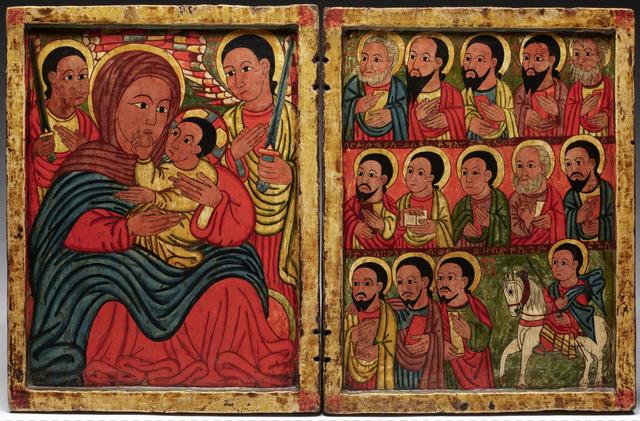
People
Ethnic groups
Ethiopia is one of Africa’s most ethnically diverse countries, with over 80 ethnic groups. The largest groups include the Oromo, Amhara, Tigray, and Somali peoples. Each group has its own distinct language, culture, and traditions. Ethnic identity plays a major role in politics and society, and Ethiopia’s constitution recognizes ethnic federalism, granting regional autonomy to different groups.

Religion
Ethiopia is religiously diverse, with Ethiopian Orthodox Christianity as the largest faith, deeply rooted in the country’s history since the 4th century. Islam is also widely practiced, especially in the eastern and southeastern regions. The government guarantees freedom of religion, and traditional indigenous beliefs continue to be observed alongside Christianity and Islam. Religious institutions play a significant role in Ethiopian society and culture, with many festivals and rituals celebrated across communities.


Settlement patterns
Rural Settlements
Most Ethiopians live in rural areas, typically in small villages or dispersed homesteads. These settlements are often clustered around farmland and water sources, with traditional housing adapted to local climates.

Urban Settlements
Cities like Addis Ababa, Mekelle, and Dire Dawa are growing rapidly. Urban areas have more planned layouts with infrastructure such as roads, schools, and markets, attracting people for employment and education.
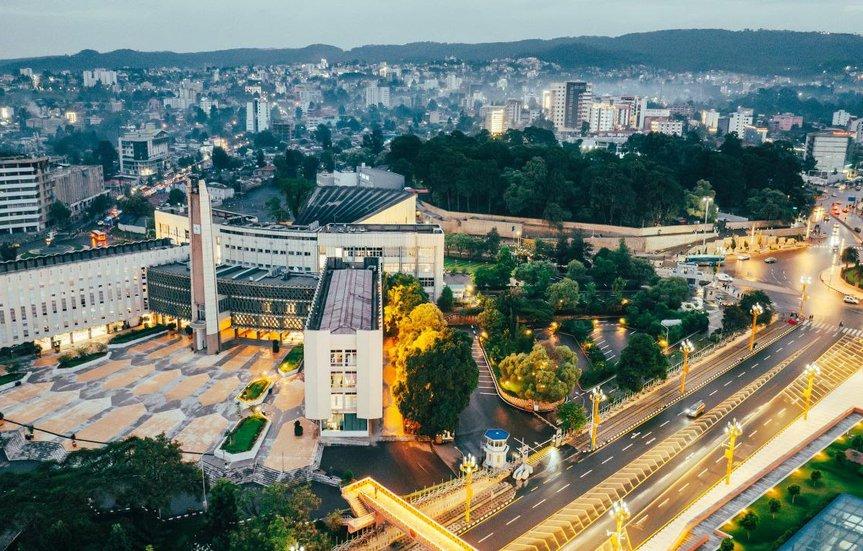
Highland & Lowland Settlements
The highlands, with cooler temperatures and fertile soils, support dense settlements focused on agriculture. In contrast, lowland areas, often hotter and more arid, have sparser populations with nomadic or semi-nomadic communities.

Demographic trends
Ethiopia has one of the fastest-growing populations in Africa, with a large proportion of its people under the age of 15. The majority of the population lives in rural areas, with increasing urbanization in cities like Addis Ababa. Population growth presents both opportunities and challenges for the country, including demands on education, healthcare, and employment. Migration to other countries has been less significant compared to some neighboring nations, with most Ethiopians living within the country. Efforts to manage population growth and improve living standards continue to be national priorities.
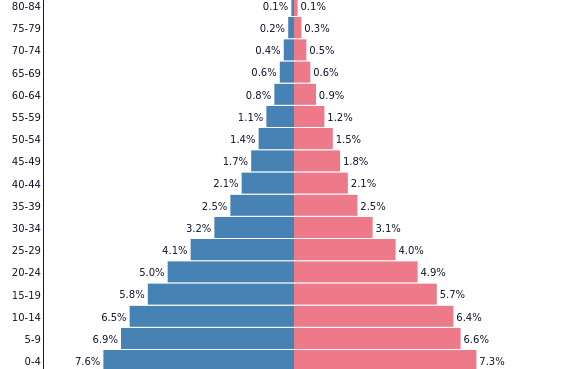
Touristic Cities
Addis Ababa
Addis Ababa, Ethiopia’s capital, is a lively and high-altitude city that blends history, culture, and modern life. Known as the “political capital of Africa,” it hosts the African Union headquarters and numerous embassies, making it a major diplomatic hub. But beyond politics, Addis is a cultural hotspot with vibrant markets, historic churches, and informative museums.
Top attractions include the National Museum of Ethiopia, home to ancient artifacts and the famous hominid fossil “Lucy,” and the Ethnological Museum, set in Haile Selassie’s former palace. Religious landmarks like the Holy Trinity Cathedral highlight the city’s spiritual significance. For shopping and exploration, Merkato one of Africa’s largest open-air markets offers a sensory overload of goods and local flavors. Meanwhile, modern districts like Bole feature trendy restaurants, lively bars, and jazz clubs that reflect the city’s evolving lifestyle.
Addis Ababa is both a starting point for travelers and a fascinating destination on its own, offering a taste of Ethiopia’s past and present in one dynamic place.
Lalibela
Lalibela, located in northern Ethiopia, is one of the country’s most iconic spiritual and historical destinations, renowned for its remarkable complex of 11 rock-hewn churches carved directly into volcanic stone during the 12th and 13th centuries under King Lalibela. Intended as a symbolic "New Jerusalem" for Christian pilgrims, these structures most famously Biete Giyorgis (House of St. George) showcase incredible craftsmanship and devotion, with intricate carvings, underground tunnels, and interconnected passageways. Still active places of worship today, the churches draw thousands of pilgrims and visitors who are captivated by the chants of priests, the smell of incense, and the serene, sacred atmosphere. As a UNESCO World Heritage Site, Lalibela offers a profound experience of Ethiopia’s ancient Orthodox faith and architectural genius, making it a must-see destination for history lovers and spiritual travelers alike.
Gondar
Gondar, often referred to as the "Camelot of Africa," is a historic city in northwestern Ethiopia known for its impressive collection of royal castles, palaces, and churches dating back to the 17th century. Once the capital of the Ethiopian Empire under Emperor Fasilides, Gondar flourished as a center of power, culture, and religion. Its most famous landmark is the Royal Enclosure (Fasil Ghebbi), a UNESCO World Heritage Site featuring a group of fortified stone castles that blend Ethiopian, Portuguese, and Indian architectural styles. Nearby, the Debre Berhan Selassie Church stands out for its stunning ceiling adorned with angelic faces, considered one of the finest examples of Ethiopian religious art. Gondar also hosts the vibrant Timket (Epiphany) festival each January, where locals in traditional white robes gather for colorful processions and re-enactments of Christ’s baptism. Surrounded by hills and offering glimpses into Ethiopia’s imperial past, Gondar remains a captivating destination for those drawn to history, culture, and religious heritage.
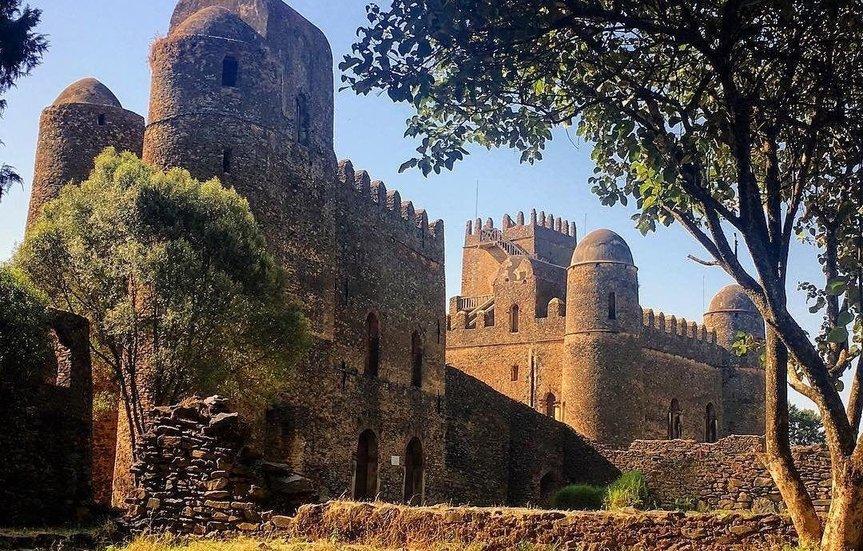
Accomodations
Guest houses
In Ethiopia, guest houses offer a warm and affordable lodging option, especially popular with travelers seeking a more local experience. They are usually family-run, providing simple but comfortable rooms, often with shared bathrooms. Guest houses allow visitors to immerse themselves in Ethiopian culture, enjoy homemade meals, and connect with local communities. Found mainly in cities and tourist areas, they are a great way to experience authentic hospitality.




Hotels and resorts
Ethiopia offers a range of hotels and resorts, from luxury in cities like Addis Ababa to comfortable lodges near natural attractions like Lake Langano and the Simien Mountains. These accommodations provide modern amenities and services to suit both tourists and business travelers.




Campings
Camping in Ethiopia is growing in popularity, especially around natural attractions like the Simien Mountains and Bale Mountains. Campsites offer basic facilities and a chance to experience the country’s stunning landscapes up close, often combined with guided trekking and wildlife viewing. Camping is a great option for adventurous travel

Requirements for Visa
Documents to be submitted for your application
- Completed application form
- Two recent passport photos (4x6 cm)
- Valid passport (6+ months)
- Passport copy (personal info page)
- Proof of residence/ID
- Bank statement or proof of funds
- Confirmed return flight ticket
- Hotel booking or invitation letter
- Visa fee receipt
- Yellow fever vaccination certificate (if applicable)
At the time of visa issuance, please provide the following documents
- Confirmed return ticket
- Travel insurance
- Hotel booking or voucher
- Payment of visa fees
Economy of Ethiopia
Agriculture, forestry, and fishing
Ethiopia’s economy relies heavily on agriculture, employing most of its population. The country’s fertile highlands are ideal for growing crops such as coffee (its main export), teff, maize, wheat, and barley. Livestock farming is also widespread, making Ethiopia one of Africa’s top producers of cattle, sheep, and goats. However, drought and unpredictable rainfall remain major challenges for the agricultural sector, affecting food production and the livelihoods of many farmers
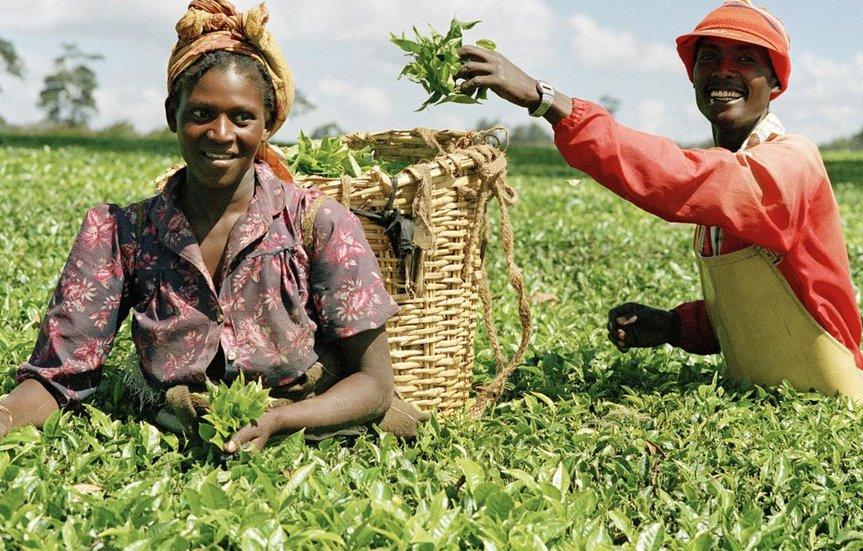
Resources and power
Ethiopia is rich in natural resources, including fertile land, forests, and water for hydroelectric power. The country has significant potential for renewable energy, especially hydropower, with projects like the Grand Ethiopian Renaissance Dam (GERD) on the Nile. Other resources include gold, tantalum, potash, and gemstones. While oil and gas exploration is ongoing, Ethiopia still relies heavily on imported petroleum for its energy needs. Hydropower remains the main source of electricity, making Ethiopia a key energy producer in East Africa.

Manufacturing
Manufacturing is a growing sector in Ethiopia, focused mainly on food processing, textiles, leather goods, and cement. The government has promoted industrial parks to attract foreign investment, especially in garment and shoe production for export. Traditional industries like handicrafts and weaving also remain important. While the sector is expanding, it still faces challenges such as limited infrastructure and energy shortages.
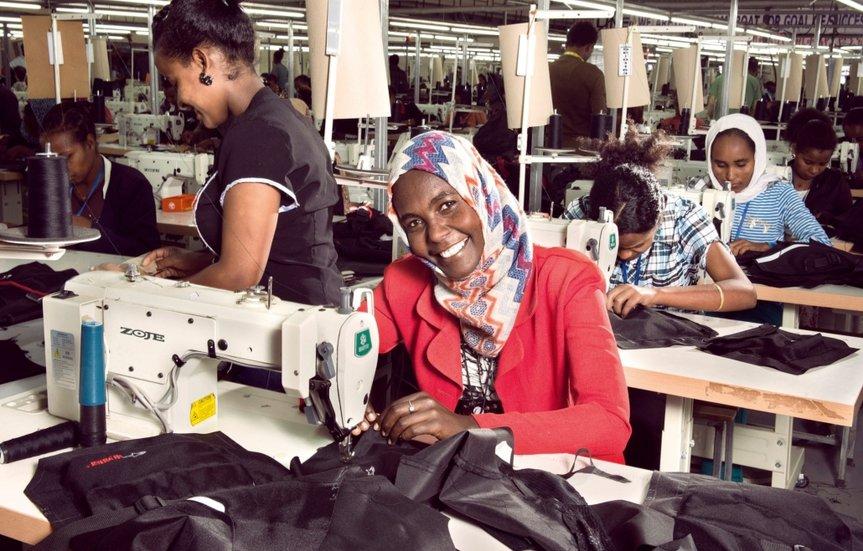
Finance
Ethiopia’s financial system is led by the National Bank of Ethiopia, which regulates monetary policy and issues the national currency, the birr. The banking sector is dominated by state-owned banks, although private banks are growing in number. Ethiopia’s financial services are still developing, with limited access in rural areas. The country does not yet have a stock exchange, and foreign banks are not permitted to operate locally.
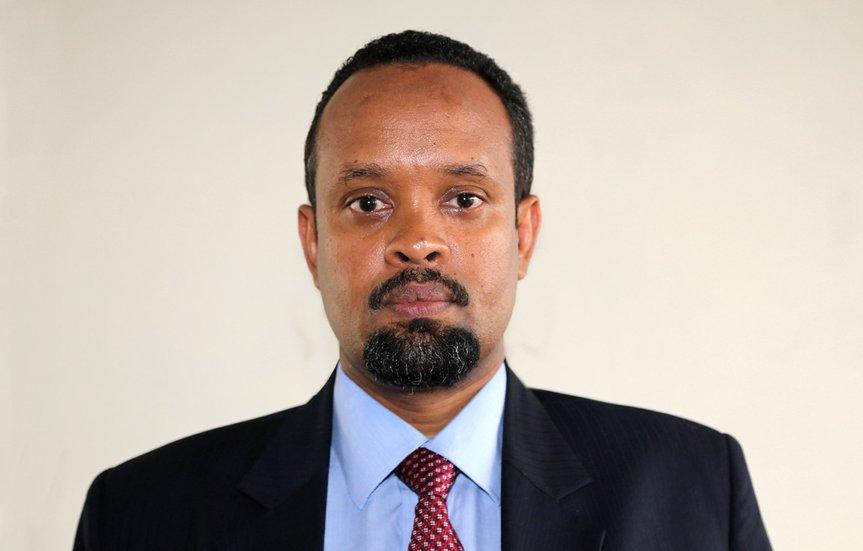
Trade
Ethiopia’s trade is largely based on agricultural exports, with coffee being the leading export product, followed by oilseeds, pulses, and flowers. The country imports machinery, fuel, vehicles, and food items. Its main trading partners include China, the United States, and neighboring African countries. Ethiopia is working to expand trade through regional agreements and infrastructure projects, though trade deficits remain a challenge.

Labour and taxation
Most Ethiopians work in agriculture, followed by services and manufacturing. Unemployment and underemployment remain high, especially among young people. Labour laws set conditions for wages and working hours, but informal work is widespread. Ethiopia’s tax system includes income tax, value-added tax (VAT), and business taxes. Tax collection has improved in recent years, but it still faces challenges, particularly in rural areas and the informal economy.
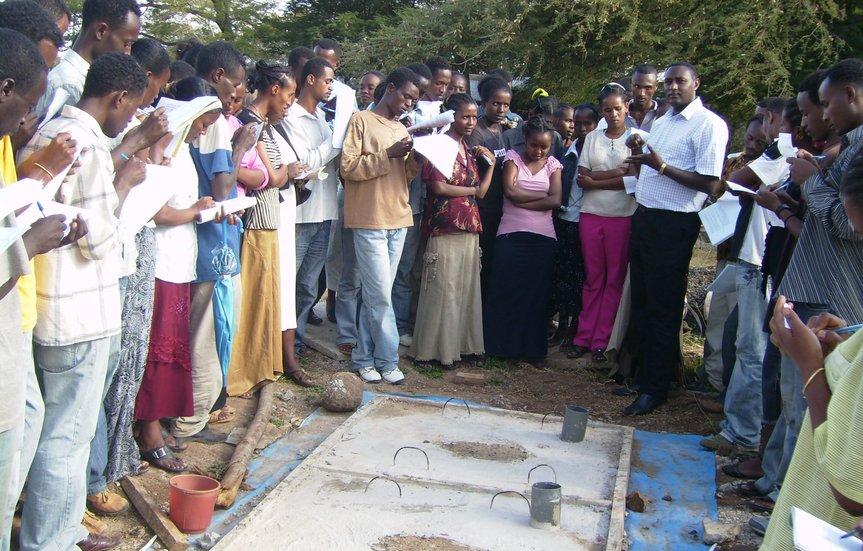
Transportation and telecommunications
Ethiopia’s transport system is developing, with improvements in roads, railways, and air travel. The country’s main railway connects Addis Ababa to Djibouti, a key trade route. Ethiopian Airlines is Africa’s largest airline, offering global connections. Road networks are expanding, though many rural areas remain hard to reach. Telecommunications are growing, with more people accessing mobile services and internet, though coverage is still limited in remote regions. The government is working to improve digital access nationwide.
